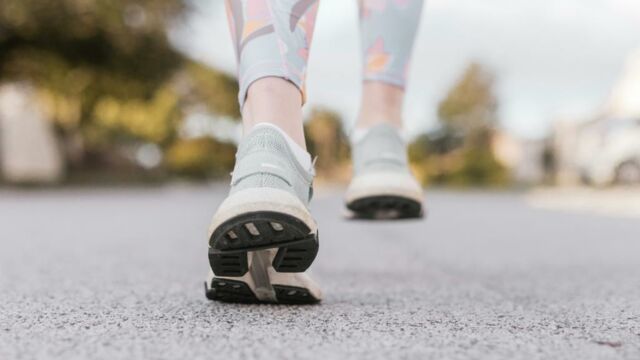Study suggests the pace at which you walk could predict when you're going to die

Daily habits can be an indicator into the state of our health and also the longevity of our lives. This study looked into the connection between your walking pace and how long you are going to live.
Diet and lifestyle experts advise people to walk not only because of its physical benefits but also because it has a positive effect on mental health.
Discover our latest podcast
There are some people who prefer to take their time while walking down streets, while others like to pace it up. The speed at which you walk may also be affected by your environment. Those living in a fast-paced metropolitan may be used to the hustle and bustle of the city, which means they have to be quick to navigate crowds and get to places on time. While those who live in quieter places have the ability to take their time.
More under this adMore under this adThere is already some debate about whether you should be walking more or faster but there's also a study that suggests that the speed at which you walk could predict when you're going to die. Here are the details of the research.
The pace at which you walk and your health
A paper published in PubMed by Joseph Henson and others, studied data from 391,744 participants in the UK collected from UK Biobank between 2006-2010, with follow-up data collected in 2021, with median age of participants being 57 years.
More under this adMore under this adThe researchers found that connections could be made between how fast or slow people walked, and the possibility of them developing (non-communicable) diseases like cancer and heart issues, and how long they live.
Participants in the study were classified as brisk, slow or average walkers, where slow walk is less than 3mph, average pace is 3-4mph while a brisk walker goes faster than 4mph.
More under this adMore under this ad
How walking faster help you live longer
Dr Jonathan Goldney, one of the authors of the paper is quoted by Daily Star, saying that the researchers want to encourage people to walk briskly as much as possible. He explains,
More under this adMore under this adWe encourage walkers to pick up their pace where possible, as this may just improve their life expectancy, alongside numerous other benefits to being physically active shown by previous research.
Unlike the study that revealed that taking an average of 6000 steps can greatly enhance the quality of life, regardless of the speed—this study really focuses on how fast you should be walking.
More under this adMore under this adThe data reveals that people who walk briskly, or even at an average pace have way better health and longevity outcomes than those who are slow walkers. Goldney further says that the results from the research suggests that walking speed could even become a routine predictor for gauging mortality risks in medical practice for some diseases. He says,
Compared to slow walkers, both brisk and average walkers are associated with lower rates of deaths related to cardiovascular disease, cancer, and other causes. Therefore, walking speed could be used in routine clinical practice as a predictive marker for cardiovascular disease and other-cause related mortality in particular.More under this adMore under this ad
Read more:
⋙ Study reveals this part of your body survives after you die
⋙ Hyperhydration: This is how much water you can drink before you die
⋙ This is why you shouldn't walk your dog everyday
Sources used:
PubMed: 'Walking pace and the time between the onset of non-communicable diseases and mortality: a UK Biobank prospective cohort study'
Daily Star: 'Nuisance slow walkers told they're more likely to die earlier than speedy strollers'